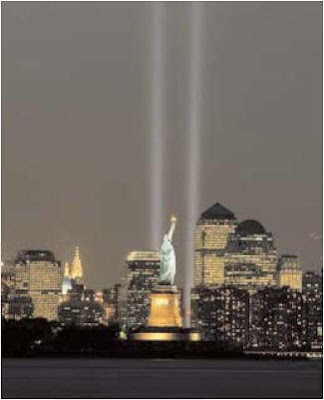 There’s a woman named Sara Niccoli, a farmer and a town supervisor in Montgomery County, who is running for the New York State Senate. The way districts are gerrymandered, the 46th District includes part of Albany County, but not the city of Albany. Otherwise, I would have supported her.
There’s a woman named Sara Niccoli, a farmer and a town supervisor in Montgomery County, who is running for the New York State Senate. The way districts are gerrymandered, the 46th District includes part of Albany County, but not the city of Albany. Otherwise, I would have supported her.
Her religious beliefs came under attack “after an anonymous Facebook page dubbed ‘The REAL Sara Niccoli’ posted” late in June “about the candidate’s [long-standing] decision not to recite” the Pledge of Allegiance.
“‘As we commemorate the birth of our nation and all those who gave so much to ensure its place as the ‘Shining City on a Hill,’ it’s unacceptable that [she refuse] to recite the Pledge… Tell Sara Niccoli to honor America!’
“Niccoli, who follows Quaker beliefs that followers do not take pledges or oaths, said …that she does stand and place her hand over her heart to salute the flag. She said the post, which makes no mention of her faith, underscores a need for Americans to revisit ‘what it means to be a patriot and how to act out our patriotism.'” She is probably alluding to Matthew 5:33-37, the Biblical invective against making oaths.
Sara Niccoli continues: “‘That means when we see attacks on faith, when we see attacks based on race or any kind of intolerance, we need to call it out, whether it’s coming from a politician pandering for votes or it’s coming out in the anonymous world of social media,’ Niccoli said. “What’s going on here…is very much a reflection of what’s going on at the federal level, and people who are sort of sitting on the sidelines disgusted by the hate and intolerance that they see, they need to get up and do something about it.”
Some came to Niccoli’s defense in the comment section of the Facebook post, though many of those were apparently deleted. Naturally, the verbiage became nasty, with profanity, “while one comment offered nothing more than an emoji of a handgun.”
Her friend and my fellow Times Union blogger Walter Ayres wrote a sterling defense in Sara, the Quaker patriot, noting “Quakers are not the only ones whose beliefs are misunderstood. Jehovah’s Witnesses, Seventh-day Adventists, Mennonites, Amish, and others have beliefs that are not always in line with the majority views on serving in the military, taking oaths and/or pledging allegiance…we should respect their right to abstain from these activities as much as we rejoice in our ability to participate in them.”
It occurred to me that her position is not dissimilar to what I’ve been reading in Jesus for President by Shane Claiborne and Chris Haw. The Litany of Resistance from Jesus for President by Shane Claiborne and Chris Haw says, among other things:
One: To the transnational Church that transcends the artificial borders of nations
All: We pledge allegiance
Found in Goodreads, Claiborne notes, “Some folks may be really bummed to find that ‘God bless America’ does not appear in the Bible.” Or as John Pavlovitz put it: “The heart of our Christian story is that God is not in a nation-maker or an empire-builder. God is a soul-lover.”
In this discussion, I’ve discovered a number of folks I know who, in their words, “do not pledge allegiance to a piece of cloth.” I can’t remember who wrote, “A pledge reciter, who recites the words ‘liberty for all’ and yet accuses non-pledge reciters of un-patriotism, is breaking their oath as they speak.” It is a form of Christo-Americanism, a “distorted form of Christianity that blends nationalism, conservative paranoia and Christian rhetoric” that has been especially virulent since 9/11.
I saw that on display at the Franklin Graham rally I protested last month. I was greeted by a couple “God thinks America’s the best” songs by a guy with his guitar.
That was all I had to say on the topic. Well, until San Francisco 49ers quarterback Colin Kaepernick refused to stand for the Star-Spangled Banner recently. While I admit that the protest made me initially uncomfortable, I find great comfort in the fact that among his staunchest defenders are veterans and active-duty military.
I’m also surprised, though I shouldn’t have been, that people were unaware of the racist narrative of the third verse of the national anthem. Four years ago, I linked to an article about Francis Scott Key’s pro-slavery defense.
I’ve also complained about the Manifest Destiny-riddled fourth verse. Do you know the song never even mentions the United States or America?
Not surprisingly to me, Jackie Robinson acknowledged in his 1972 autobiography, “I cannot stand and sing the anthem. I cannot salute the flag.” The wise Kareem Abdul-Jabbar notes: Insulting Colin Kaepernick says more about our patriotism than his. I like what Rob Hoffman had to say on the issue.
Finally, I just came across Has the American Dream Been Achieved at the Expense of the American Negro?, a famous 1965 debate between James Baldwin and William F. Buckley, Jr. Baldwin addresses “What are the psychological effects of oppression?”: “It comes as a great shock around the age of 5, 6, or 7 to discover that the flag to which you have pledged allegiance, along with everybody else, has not pledged allegiance to you.” A half-century later, this still resonates for many people in “the land of the free.”



